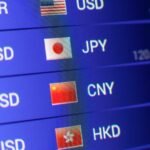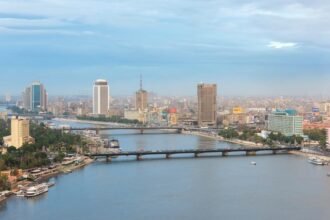With its oil wealth, Nigeria should be awash with foreign currency. But years of economic mismanagement have left the country with a debilitating shortage of dollars. In an attempt to fix the problem, President Bola Tinubu relaxed longstanding foreign exchange restrictions shortly after taking office in May 2023. The local naira currency, pegged for years at an artificially high level against the dollar, has since fallen 70%. Tinubu’s goal was to trigger an influx of foreign capital and eventually make Nigeria a more attractive investment destination. The near-term impact was to send inflation surging to a 28-year high, leading to a cost-of-living crisis that could potentially undermine stability in Africa’s most populous nation.
Despite Nigeria being among Africa’s largest oil producers, the economy has stagnated for years, its resource riches plundered by a politically connected elite. Corruption is endemic, many state institutions are dysfunctional and armed bandits and Islamist militants roam the country’s north. About 40% of Nigeria’s more than 200 million people live in dire poverty, according to the World Bank, and the higher living costs have added to their ranks. Dollar shortages persist, and businesses also face constant policy uncertainty and power cuts. The government used 68% of the revenue it collected in the first half of 2024 to service debt, an improvement on past years but still not leaving much for anything else. Under previous management, the central bank played a highly unorthodox role, providing loans to small businesses and introducing multiple exchange rates. The system was supposed to boost dollar availability to key parts of the economy, but had the opposite effect, fanning a thriving unofficial currency market that made the naira even more volatile by encouraging speculation.





















